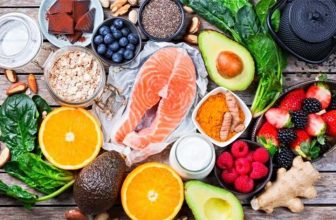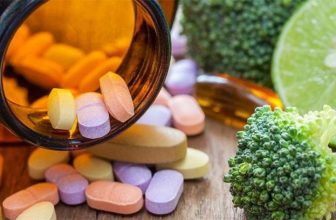
Vitamin D – aka ‘the sunshine vitamin’, is produced in your skin when exposed to sunlight which can account for up to 90% of our total vitamin D intake, the other 10% coming from what we eat. It’s a fat-soluble vitamin including compounds of vitamin D1, D2, and D3 and is absolutely essential for health. It is used by the body for the absorption of calcium, bone development and immune system function.
The recommended daily intake for vitamin D is between 600 and 800 IU, so it’s important to get your daily dose. To help you find out how, especially this winter, let’s tuck into 5 Foods with High Vitamin D Content!
1. Oily Fish
This is great for all sea food lovers as a variety of oily fish, such as salmon, sardines and canned tuna, have some of the highest quantities of vitamin D. 100 grams of sockeye salmon contains 526 UI, and if you’re looking for a delicious salmon recipe, check out the video above!
2. Egg Yolks
Egg yolks are another good source of vitamin D as well a nutritious whole food. An average egg yolk contains 37 IU of the vitamin, or 5% of your RDA. Eggs are versatile, you can include them in countless different meals. Eggs are an inexpensive, high quality protein, providing you with all nine essential amino acids.
3. Mushrooms
Similar to humans, mushrooms naturally produce and trap the vitamin from their exposure to sunlight. Mushrooms contain ergosterol which converts to vitamin D when exposed to light. They’re a perfect vegetarian/vegan source of the vitamin and some types contain up to 568 IU per 50 grams which is 95% of your RDA, providing you with almost all you need!
4. Red Meat
Consisting of foods like pork, beef and lamb, red meat comes in quite high for this vitamin. Beef liver, for example, contains 49 IU of vitamin D per 100 grams. It’s important not to consume too much red meat as it is high in saturated fat which can raise cholesterol and lead to other issues.
5. Fortified Foods
Many foods are fortified with vitamin D, meaning that it doesn’t naturally occur in the food but it has been added to improve nutritional value. Examples include fortified tofu, cereals and yogurt. Despite being processed, fortified foods can be included in a healthy diet. Fortified tofu has 139 IU of vitamin D in just 18g, and fortified yogurt has 88 IU of the vitamin in 170g









